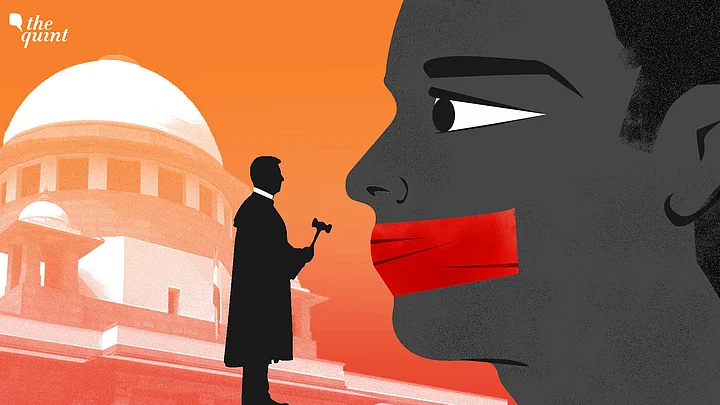I followed Professor Ali Khan Mahmudabad's bail proceedings on my phone, while en route to my law chamber. With every subsequent oral comment made by Justice Surya Kant - India’s incoming Chief Justice with a tenure of about 14 months - the disbelief only grew.
It’s a trite observation that our top Court is polyvocal; one knew therefore, by experience, that Justice Shreeniwas Oka’s exaltation of ‘unpopular speech’ in the recent Imran Pratapgadhi judgment would not bind another Supreme Court judge. We also had the benefit of Justice Kant’s oral comments and orders in that other case of the comedians and YouTubers. Yet, even by the standards set by himself, the ‘bail’ order in Professor Mahmudabad’s case and the accompanying observations lay down new paradigms for speech jurisprudence in India. While Professor Mahmudabad did secure a release in the Supreme Court, it is his bail hearing, and the ensuing bail order, which merit solemn attention.
What Did Mahmudabad Do?
There are three primary allegations against Mahmudabad. He has, the State says,
(a) endangered India’s sovereignty and unity;
(b) promoted enmity between religious groups; and, because the complaint was filed at the behest of Haryana’s Women Commission Chairperson,
(c) insulted the modesty of a woman.
The subject matter of the FIRs - Mahmudabad’s two Facebook posts - are in public domain and have been widely shared since his arrest.
At the outset, let us be clear about one thing: there is nothing ‘radical’ in the professor’s posts; his views on non-State actors fuelling unrest in Kashmir, and Pakistan’s role in it, is very much in line with the establishment's own thoughts.
The other two parts—where, firstly, he juxtaposes the veneration of Colonel Sofiya Qureshi with the political hounding of Muslims in India, and then reminds his readers of the costs of war—have, for obvious reasons, not gone down well with the establishment and its lackeys.
Be that as it may, a reasonable freshman at any law school would be able to make out that the contents of Mahmudabad’ posts are far from being prosecution-worthy. It is thus astounding that Haryana Police thought that the ‘case’ against the professor necessitated his immediate detention.
His arrest was as illegal as illegal arrests come, and this was a fit case for direct intervention by the Supreme Court.
Justice Kant’s other recent cases involving speech betray that his worldview puts extraordinary emphasis on the limits on free speech, and not on the liberty to make that speech. More importantly, the limits envisioned do not flow strictly from the Constitution; they come from a conditioned notion of the Indian society, one in which the State as a paternal actor can unreservedly clamp down on speech not in line with majoritarian morality.
Couple this worldview with the fog of war, and you get what passes off as a bail order in Mahmudabad’s case.
Can Courts Issue 'Threats'?
The Court’s choice of phrases to describe Mahmudabad’s posts was instructive: it views the speech as an ‘anti-war’ gimmick and questions the timing of the ‘communal’ post.
Two observations stand out: one, in which the Court labels the posts as dog-whistle and the other, where it chides Mahmudabad - and through him, others of the same ilk - for alluding to his rights.
The country is not ‘distributing rights’, Justice Kant observes, and then goes on to call for ‘simple, respectful’ speech which is made without ‘hurting others’.
The most frightening observation comes towards the conclusion of the proceedings, where the Court says it knows how to ‘deal with’ students and professors, should they dare to ‘join hands’, as they are within the Court’s jurisdiction.
The meaning and content of this remark remains unclear but one can assume it’s a warning against extension of solidarity towards Mahmudabad, or repetition of his behaviour.
This unprovoked ‘threat’ is chilling. It transforms the Court from a custodian of fundamental rights into a censoring authority, a speech regulator. It thwarts expression even before its formulation. It turns the Constitution on its head.
Evolving Jurisprudence of 'Free' Speech
I am hardly a free speech absolutist. The scrutiny of any speech, written or spoken, and especially of its legality, has to be basis the words employed, and their combination to form one coherent idea. This is the fundamental principle underlining all laws which restricts speech.
Professor Mahmudabad’s posts were an exercise in public civility, a mild expression of a sentiment not in keeping with the widespread clamour for war. It is exactly this speech which is afforded protection under the Constitution.
What is not protected under the Constitution, however, is the BJP minister Vijay Shah’s actual dog-whistle, in which he linked Colonel Qureshi with the terrorists across the border. That now there is an SIT to ‘investigate’ both speeches is an inversion of reality we are all condemned to witness.
The Court eventually handed down a heavily conditioned bail order which, amongst other things, gags Mahmudabad from expressing any opinion on the Pahalgam terror attack.
This jurisprudence is of recent origins, in which you barter one species of liberty for another.
A team of IPS officers will now ‘holistically understand the complexity of the phraseology employed’ by Mahmudabad, so that there is ‘proper appreciation of some of the expressions used in these two online posts’.
Experts agree that there are two approaches to interpret words: a linguistic approach and a metaphysical approach. Perhaps the Court wants the SIT to explore the metaphysical underpinnings of Mahmudabad’s words, since the ordinary semantics fail to establish anything incriminating. This is perhaps a new normal in speech jurisprudence, and we’d have to see how the consequences of innocuous unpopular speech play out in this theatre of the bizarre.
(Harshit Anand is an advocate practicing at the Supreme Court of India. He tweets at @7h_anand. This is an opinion piece and the views expressed above are the author’s own. The Quint neither endorses nor is responsible for the same.)
